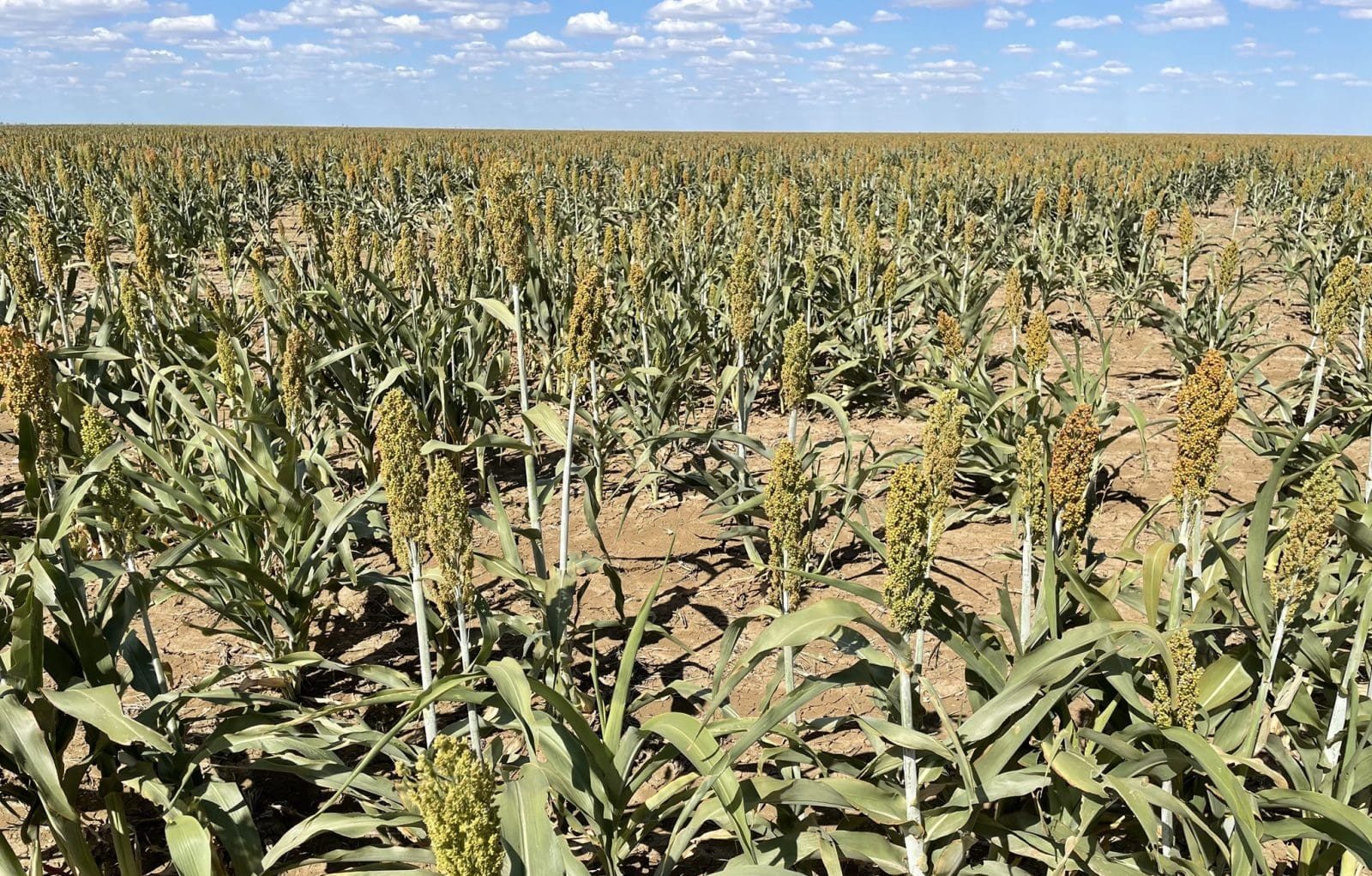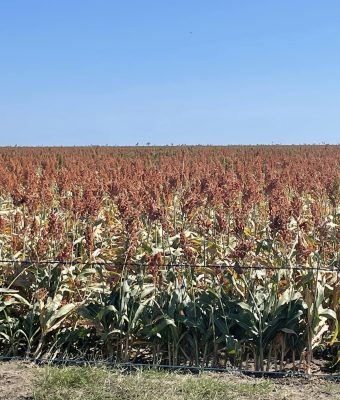
Sorghum growing in North Queensland. Source: Southern Gulf NRM
WITH an ever-expanding list of growers keen to trial new crops, North Queensland just needs new export markets and infrastructure investments to propel the region into an established grain production powerhouse.
In recent years, NQ has been a haven for large-scale and high-profile New South Wales grain and cotton growers searching for affordable and productive country.
These include the Findleys from Narrabri, who purchased Etta Plains near Julia Creek to trial cropping in 2019, alongside renowned grower Ron Greentree, who crops on Strathmore Station in the Gulf Country, and sustainable agriculture pioneers David and Danielle Statham at St Ronans in the central Tablelands of north-east Qld.
These growers are primarily focused on cultivating staples of the southern Queensland and northern New South Wales summer-cropping programs, including sorghum, cotton, and corn.
Additionally, they are experimenting with pulses and niche products through trial runs.
However, for smaller-scale growers without ready access to supply chains and export markets, finding places to store and sell their grain is proving a challenge.
These growers also have limited domestic consumers, and the local market often gets swamped, resulting in price volatility.
Options slowly increasing
The recent construction of a bulk-handling facility by Millmerran-based transport company Sizer & Coggill at the Port of Townsville has spurred on the industry, but growers say this alone will not be enough to make grain crops a permanent fixture in NQ.
Atherton grower Brad Jonsson is trialing corn and grit and soy crops and has experimented with cotton and other crops in previous seasons.
Mr Jonsson is the president of Far North Queensland Sustainable Cropping Inc, an organisation formed to share knowledge and promote new crops in the region.
He said there was “definitely strong interest” in growing grain, but without buyers, farmers were hesitant to trial different crops.
“No one has approached us to grow anything; I’ve had numerous phone calls, but it hasn’t come to anything,” Mr Jonsson said.
“It has been a struggle for us; we have plenty of country and we want to expand.
“If someone comes to us looking for sorghum, we would be happy to set up a contract to plant it, but no one has come to us.”
Grazier and Burke Shire Council mayor Ernie Camp and sharefarmer Harry Pye harvested their first sorghum crop in 2022 at Floraville Station, Burketown.
Mr Camp said 1500t of sorghum was exported to China in containers via the Port of Townsville.
“It was an expensive way to do things… but it was more a trial to see if it was possible, and it was,” Mr Camp said.
He said the operation was hoping to plant another sorghum crop at the end of last year, but ill-timed rain pivoted them to planting a 1500ha cotton crop.
“Some of that failed to emerge because of the extreme heat, but we believe there is still some viable crop there.”
Mr Camp said the industry was still young and should prove successful in the future thanks to the enthusiasm of existing and new growers.
“They aren’t making any more land, and more and more land is being covered in bitumen for housing.
“I’m confident that when people put their full effort into cropping in the Gulf that it will happen, and it will be very successful.”
Creating markets
Robinson Grain Trading is one company that has taken up the challenge to create pathways to get NQ grain to international markets.
RGT has offices in Dubbo and Sydney in NSW and Toowoomba in Qld.
Based at the Toowoomba office, commodity trader Anthony Furse said RGT was working with growers, Sizer & Coggill, and the Port of Townsville to trial paths to export.
“We’re encouraging and looking at developing markets and pathways to market for north Queensland,” Mr Furse said.
Mr Furse said Port of Townsville infrastructure currently handles only containerised grain.
He said this created major roadblocks with “the amount of empty containers you can get access to in Townsville being pretty limited”.
“Then you have issues in major shipping services and the pre-booked routes that they do don’t often include Townsville as a stopping point.”
Mr Furse said bulk shipments will be needed to make exports worthwhile.
“Bulk will be the way of the future; I don’t see containers getting cheap or being the long-term result unless we are growing more niche type crops.
“Townsville Harbour is okay for bulk, but the grain storage and handling around the bulk needs to be tested and is in development.”
Further investment needed
Mr Furse and Mr Camp believed more investment was needed in on-farm and road-freight infrastructure to make the industry viable long-term.
Mr Furse said infrastructure formed the “pathways to markets” that aways exist for Australian grain.
“You don’t have the normal infrastructure up there at the moment, so no one is set up for it yet.
“We have to look at how we can set up bunkers and then cart it later on.”
He said growers also needed more information on how to store grain in north Queensland.
“There is not a lot of information around storing grain in an environment that has tropic monsoons and heavy wet weather like their summer systems.”
Outside of storage, Mr Camp said the current road networks were not fit to handle the additional freight task.
“I think the biggest hindrance going forward is that governments have been talking about developing northern Australia ,but they haven’t put any money in for infrastructure.
“It is possible that this project could expand to 40,000ha and, if you talk to my neighbours, it could go to 250,000ha.
“Even with 40,000ha and with 4-5 tonnes to the hectare, the traffic load that would put on our road infrastructure, it would be destroyed.”
Grain Central: Get our free news straight to your inbox – Click here

HAVE YOUR SAY